Physical Address
304 North Cardinal St.
Dorchester Center, MA 02124
Physical Address
304 North Cardinal St.
Dorchester Center, MA 02124
Potassium is needed for healthy blood pressure and for the body to function properly.

Consuming fruit provides numerous health advantages, including significant amounts of potassium, an essential mineral for maintaining bodily functions.
As registered dietitian Natalie Rizzo, nutrition editor for TODAY, explains, potassium functions as an electrolyte that helps regulate hydration and fluid balance throughout your system.
“Research indicates that increasing potassium intake can effectively reduce blood pressure levels,” Rizzo notes.
This reduction correlates with decreased risk of cardiovascular disease and stroke, according to CDC findings.
The National Institutes of Health identifies potassium as crucial for kidney and heart operation, muscle movement, and nervous system signaling.
Despite its importance, many Americans face potassium deficiency. Current Dietary Guidelines for Americans classify potassium as an “essential nutrient of concern” due to insufficient consumption of nutrient-rich foods nationwide.
Daily recommended potassium intake is 3,400 milligrams for men and 2,600 milligrams for women. For context, one medium banana contains 420 milligrams of potassium.
While bananas are commonly associated with potassium, Rizzo points out that many fruits—particularly yellow and orange varieties—serve as excellent sources of this vital nutrient.
Here are nine fruits with the most potassium:
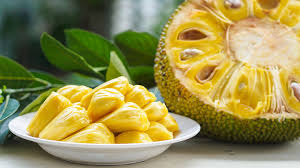
This versatile fruit exhibits two distinct culinary personalities. Ripe jackfruit offers sweet flavors meant to be enjoyed raw. Unripe jackfruit, however, presents a texture remarkably similar to chicken or pork, making it an excellent plant-based meat alternative.
“Its fibrous consistency pairs particularly well with zesty barbecue sauce,” notes registered dietitian Frances Largeman-Roth. “Jackfruit can be incorporated into tacos, burritos, curries, grain bowls and stir-fries.”
A cousin to figs and breadfruit, jackfruit stands out among fruits for its impressive protein content.

Prunes—essentially dried plums—offer a chewy, moist texture reminiscent of portable plum preserves. These nutrient-dense fruits boast high fiber content and rank among the most antioxidant-rich fruits available.
Both the dried fruit and its juice effectively relieve constipation, though experts caution that prune juice contains twice the calories and less fiber than whole prunes.
Rizzo emphasizes that the recommended serving for any 100% juice is just half a cup. Despite the high potassium content in prune, pomegranate, and orange juices, moderation remains essential.
“For optimal nutrition, obtain potassium primarily from whole fruits with minimal juice supplementation,” she recommends.
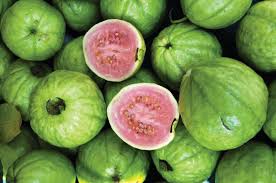
This exotic fruit shines whether enjoyed solo, tossed into salads, blended into smoothies, or incorporated into savory recipes.
Beyond its impressive potassium content, guava provides substantial magnesium and stands out for its exceptional protein, fiber, and vitamin C levels.
“Guava’s soluble fiber offers significant cardiovascular benefits, including reduced blood pressure and lower LDL cholesterol,” explains Shelly Wegman, registered dietitian at UNC Rex Nutrition Services, in previous comments to TODAY.com. These improvements help decrease your risk of heart disease and stroke.
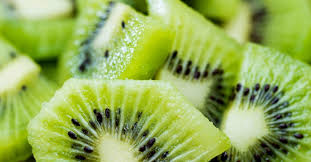
This compact green fruit delivers impressive nutritional benefits despite its modest size. Kiwi offers abundant fiber and vitamin C, while also containing lutein—an antioxidant that Wegman highlights for its protective effects on eye health.
With its distinctive sweet-tart flavor profile, kiwi additionally stands among fruits with minimal sugar content.
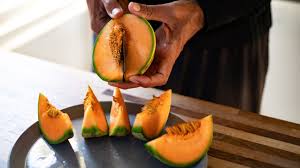
Refreshingly sweet and moisture-rich, cantaloupe delivers substantial vitamins A and C alongside its potassium content. This orange-fleshed melon also provides lutein and zeaxanthin—compounds that promote optimal vision health.
Versatile in its applications, cantaloupe excels in fruit medleys, pairs elegantly with prosciutto, or stands alone as a nutritious between-meal option.
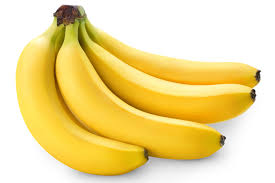
Renowned for their potassium content, bananas maintain their status as America’s best-selling fruit.
Their smooth texture and satiating quality stem from a beneficial combination of natural sugars and fiber.
While bananas contain higher carbohydrate levels than many fruits and vegetables—sometimes leading to unwarranted criticism—Rizzo confirms that daily banana consumption provides valuable nutritional benefits.
“A single banana supplies approximately 15% of your daily potassium requirement. Additionally, bananas naturally enhance sweetness in various dishes while providing fiber and vitamin C,” she explains.
Plantains, close relatives to bananas, feature larger size, higher starch content, and less sweetness, requiring cooking rather than raw consumption.
TO READ MORE, OPEN THE LINK BELOW:
https://www.today.com/health/diet-fitness/fruits-with-high-potassium-rcna197091